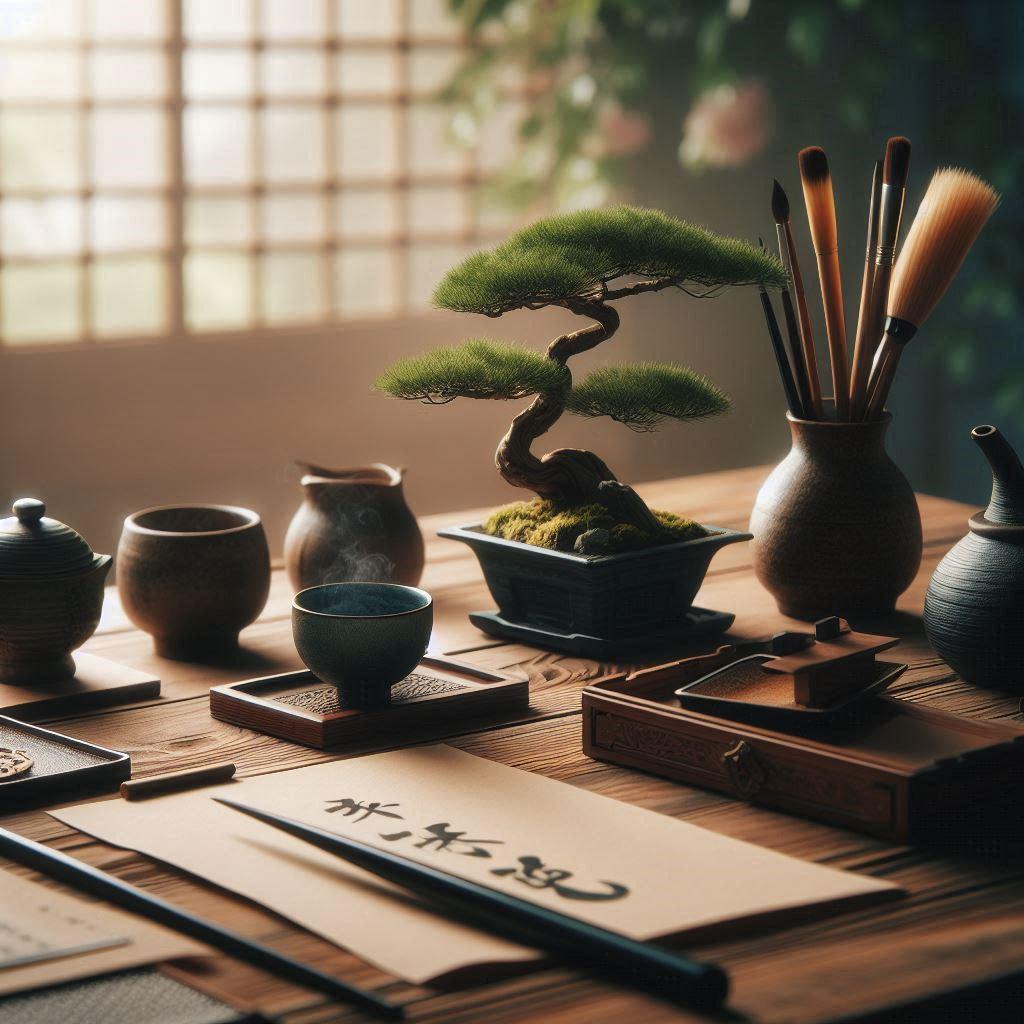
In a world dominated by distractions, endless to-do lists, and the constant pressure to keep up, we often lose touch with what truly matters. Yet, the ancient wisdom of Japanese principles offers a path to clarity, peace, and a life of meaning. These timeless concepts invite us to slow down, embrace imperfections, and find strength in simplicity.
Here are 8 Japanese principles that can transform the way you live, guiding you toward a life that feels more grounded, intentional, and fulfilling. Take time to reflect on each one, and consider how these ideas might help you rediscover a more powerful and meaningful way of being.
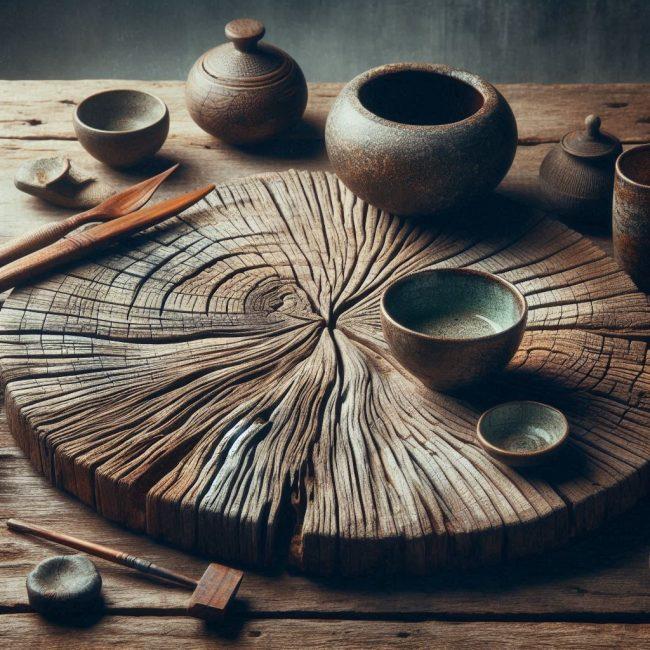
1. Wabi-Sabi: Beauty of Imperfection
Wabi-sabi is the Japanese art of finding beauty in imperfection and transience. It’s about embracing the fact that nothing lasts forever, and that there is value in the flawed and unfinished. Instead of striving for perfection, we are invited to appreciate the natural beauty of the imperfect and the ephemeral.
Example:
Consider a weathered wooden table—its scratches and faded color tell the story of years of use. Instead of seeing it as worn out, wabi-sabi teaches us to appreciate its history and unique charm. Similarly, think about the marks that time leaves on your own life: your scars, your struggles, and your growth. They are part of your story, not signs of failure.
What does this mean for you?
Do you often find yourself chasing an unattainable ideal? Wabi-sabi encourages you to let go of that pursuit and instead, find beauty in the present moment and in the imperfections that make you who you are.

2. ikigai: the reason for being
Ikigai is the Japanese concept of “the reason for being.” It’s the intersection of your passions, your talents, the world’s needs, and what you can be paid for. Ikigai is about finding deep fulfillment through purpose, and it encourages you to live a life that resonates with your true self.
Example:
Think of someone who is a teacher. They may love teaching (passion), they are skilled at it (talent), the world needs teachers (need), and they can earn a living from it (profession). Their ikigai lies in the joy they experience from sharing knowledge and guiding others.
What does this mean for you?
Are you feeling disconnected from what you do every day? Ikigai invites you to explore what truly lights you up and start aligning your life around that passion. By doing so, you not only find meaning in your work, but you also feel more alive in the process.

3. Shinrin-yoku (forest bathing)
Shinrin-yoku, or “forest bathing,” is the Japanese practice of immersing yourself in nature, allowing it to soothe and restore your mind and body. It’s not about hiking or exercising; it’s about being present in nature, breathing deeply, and engaging all your senses to absorb the healing properties of the natural world.
Example:
Imagine walking through a quiet forest, the scent of pine filling the air, birds singing in the trees, and the soft rustle of leaves beneath your feet. You take a moment to pause, close your eyes, and breathe in the earthy fragrance around you. The calm you feel afterward isn’t just a result of physical movement, but of truly being present and connecting with nature.
What does this mean for you?
In the hustle and bustle of daily life, we often forget the healing power of nature. Shinrin-yoku encourages you to reconnect with the earth, take time away from screens and schedules, and let nature’s tranquility help clear your mind and restore your energy.
.
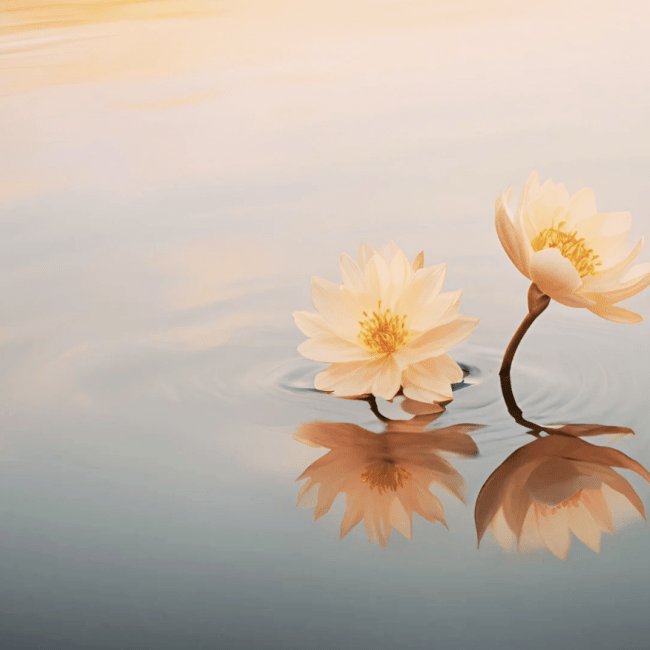
4. Zazen (Mindful Meditation)
Zazen is the practice of seated meditation, a cornerstone of Zen Buddhism. It involves sitting quietly, focusing on your breath, and letting go of distractions to reach a place of stillness and clarity. Zazen isn’t just about meditation; it’s a way of living more mindfully, with greater awareness of the present moment.
Example:
Imagine you wake up early in the morning, sit on a cushion in a quiet room, and focus on your breath. You feel the rise and fall of your chest with each inhale and exhale. As thoughts come and go, you simply observe them without judgment, returning your attention to your breathing. The calm and clarity you gain in those moments extend throughout the rest of your day.
What does this mean for you?
If your mind is constantly racing, Zazen offers a way to find mental clarity. It’s a practice that helps you cultivate patience, awareness, and a sense of peace amidst the chaos of everyday life.
.
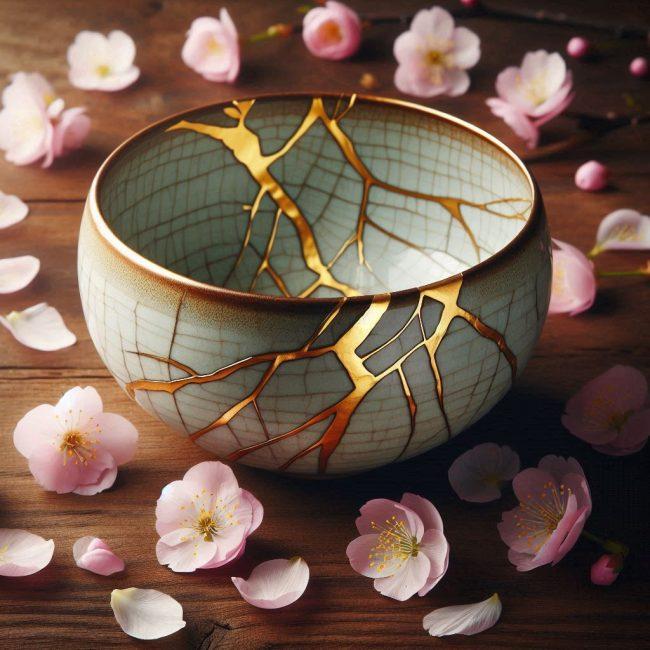
5. Kintsugi (Healing through acceptance)
Kintsugi is the Japanese art of repairing broken pottery with gold or silver, turning the cracks and imperfections into something beautiful. Rather than hiding the damage, Kintsugi highlights the cracks, making them a celebrated part of the object’s history. The philosophy behind it is that our scars and past hardships are what make us whole, not broken.
Example:
Imagine a ceramic bowl with a crack running through it. Rather than discarding it, Kintsugi repairs the crack with gold, creating a stunning pattern of veins that enhance the bowl’s beauty. The bowl is no longer “flawed”; it’s transformed into something even more precious, its history immortalized in its design.
What does this mean for you?
We all have moments in life that break us—whether emotionally or physically. Kintsugi teaches us to honor these cracks and to find strength and beauty in our past struggles. It’s about embracing our imperfections and understanding that they are part of what makes us whole.

6. Oubaitori (Respect Seasonal Change)
Oubaitori, or “one crane alone in the spring,” teaches us to embrace the natural cycles of life. Just as nature changes with the seasons, we too go through cycles of growth, rest, and transformation. This principle reminds us that we should honor each phase of life, whether it’s a time of abundance or a time of challenge. Avoid comparisons and accept your unique path. Like trees that blossom in their own time, respect your pace will quiet the mind and reduce stress.
Example:
Think of a tree that sheds its leaves in the fall. It’s not a time of loss—it’s a time of rest and renewal. In winter, it prepares for the spring bloom. Similarly, in our lives, there are times of growth, but there are also moments when we must let go, rest, and recharge before moving forward.
What does this mean for you?
If you’re in a phase of struggle or stagnation, Oubaitori encourages you to accept it, knowing that it’s part of the natural rhythm of life. Every season has its purpose, and sometimes the “quiet” moments are the ones that prepare us for the next phase of growth.

7. Misogi (Ritual Purification)
Misogi is the Japanese practice of purification—both physical and spiritual. It’s a way of cleansing the mind, body, and spirit, often through water, rituals, or reflective practices. Misogi helps release accumulated negativity, habits, or past emotional weight, allowing for renewal and transformation.
Example:
In ancient times, Japanese people would stand under waterfalls as a form of purification. The cold, rushing water symbolized cleansing and renewal, washing away the impurities of the past to emerge with a fresh mind and body.
What does this mean for you?
Misogi invites you to let go of what no longer serves you. Whether it’s a toxic habit, a negative thought pattern, or emotional baggage, this principle encourages you to create space for a new beginning. It’s a reminder that you have the power to purify and start anew.
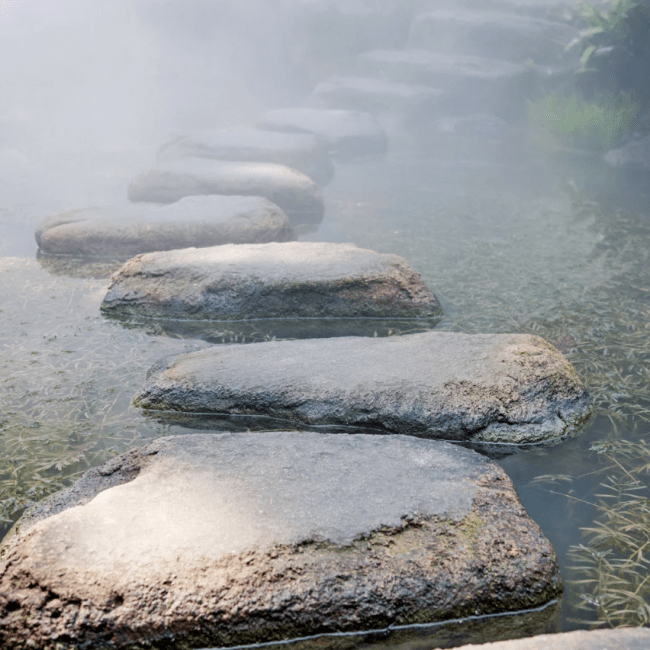
8. Kaizen (Small Improvements)
Kaizen is the practice of continuous, small improvements. Rather than making drastic changes, Kaizen encourages incremental progress—tiny steps that compound over time. The principle teaches us that lasting change is often built one small action at a time.
Example:
Imagine you want to get healthier. Instead of attempting a complete lifestyle overhaul, you start with one small change: taking a 10-minute walk every day. Over time, that small habit builds, leading to greater health and fitness without feeling overwhelmed by drastic shifts.
What does this mean for you?
Kaizen shows us that small steps lead to big results. Rather than focusing on perfection or major breakthroughs, Kaizen teaches us to celebrate and build upon the small, consistent improvements we make each day.

Final thoughts
These eight Japanese principles invite us to live with greater mindfulness, clarity, and purpose. They challenge us to slow down, embrace our imperfections, and find beauty in life’s natural rhythms. They remind us that growth, peace, and meaning are found not in grand gestures, but in the simple, intentional choices we make every day.
As you reflect on these principles, consider how they might apply to your own life. Take a moment to think about where you can begin to make small, mindful shifts that will lead to a more meaningful and fulfilled existence. Each principle offers a doorway to a deeper connection with yourself and the world around you.





